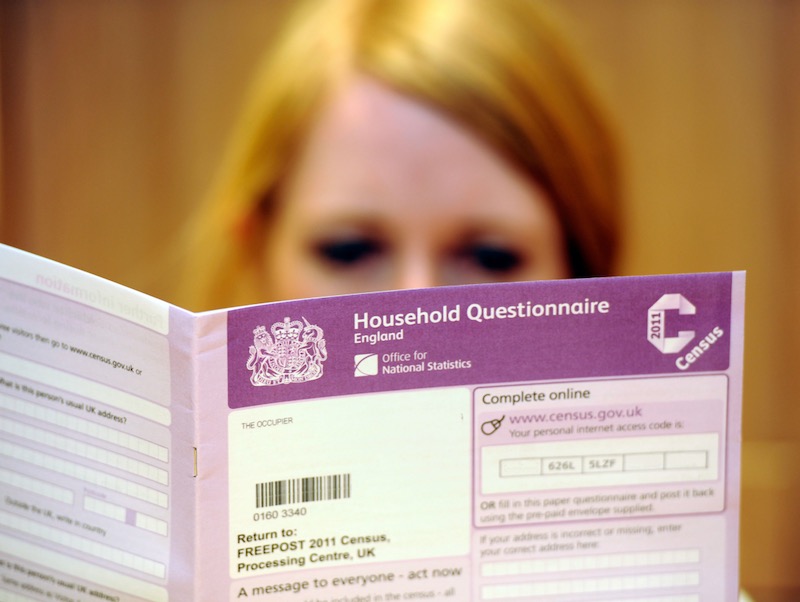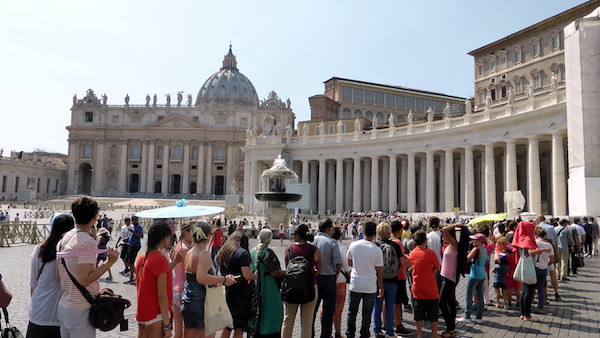Pope Francis has appointed the first non-cleric to manage the Vatican’s finances after the current prefect, a Jesuit priest, resigned due to health reasons.
Maximiliano Caballero Ledo, 62, a Spanish financier who has worked for the United States multinational Baxter Healthcare, becomes the Prefect for the Secretariat for the Economy, an office with authority over all economic affairs of the Holy See.
Caballero has served as the number two official in the office since August 2020 and takes over from Fr Juan Antonio Guerrero Alves SJ, who the Vatican announced on 30 November would step down due to “personal reasons.”
In a letter sent to his team at the secretariat, seen by The Tablet, Fr Guerrero, 63, explained that as a result of surgery he had undergone earlier this year, “I am undergoing medical treatment that produces certain side effects that make it particularly difficult for me to carry out a task as demanding as the one I am carrying out and that requires better physical efficiency and mental concentration than I have at the moment.”
The Spanish Jesuit was appointed prefect of the economy office in November 2019, and his tenure has seen a high-pressure period of financial reform in the Vatican, an unprecedented corruption trial involving a cardinal and the drop in income caused by the Covid-19 pandemic.
Fr Guerrero has overseen several changes in Vatican financial management, including publishing annual budgets for the Holy See, which are the most detailed figures ever released by the Church’s central government, and moves to place greater oversight over Vatican investments.
Since Fr Guerrero took up his position, Pope Francis has also issued an anti-corruption law which includes a ban on Vatican employees from receiving gifts of more than €40 and strict new laws on the use of outside contractors, which align with the Church with the United Nations convention on corruption.
Fr Guerrero was unafraid to address the scandals and problems facing Vatican finances. Ten defendants, including Cardinal Angelo Becciu, a former close aide to Pope Francis, are part of an ongoing corruption trial with a €350 million London property deal at 60 Sloane Avenue, Chelsea, a central part of the case.
Becciu is the first Vatican cardinal to have been prosecuted for financial impropriety and is facing charges of embezzlement and abuse of office. It recently emerged that the Sardinian cardinal secretly recorded a telephone call with the Pope, leading the Vatican's chief prosecutor to consider a new charge of criminal conspiracy against Becciu.
“We are well aware that we have made major mistakes in financial management, which have undermined the credibility of the Holy See,” Fr Guerrero said.
Earlier this year, the Holy See’s finance chief reported that the Vatican had now sold the London property following a process “carried out in full transparency and according to the new rules for Vatican contracts”, while external professional advisors had assisted in the process.
But it’s understood that the Vatican lost £100 million from the investment in the Chelsea building.
Fr Guerrero was also tasked with tackling the Holy See’s income shortfall after the pandemic saw a steep decline in visitor numbers and donations.
He sought to cut costs and kept to the Pope’s policy of not reducing staff numbers. One of these measures included cutting the pay of Rome-based cardinals by 10 per cent.
While he has managed to reduce the Vatican’s deficit to slightly more than €3 million, Fr Guerrero has warned that “a very uncertain period lies ahead” as costs rise and revenue dwindle. He has also stressed that the Holy See is not a business trying to make a profit and is mission-focused.
The decision to appoint a lay person to lead Vatican finances is something Church financial experts have been calling for.
“One of the problems is that members of the clergy in positions of responsibility had not always been properly informed of what their role entailed when it came to financial oversight. It is an issue linked to an outdated system,” Lord (Tom) Camoys, a veteran UK banker and long-time financial adviser to the Vatican, told The Tablet last year.
The mishandling of the London deal led to Francis ordering the transfer of the management of the Secretariat of State’s assets to APSA (Administration of the Patrimony of the Holy See), where Dr Fabio Gasperini, who has 25 years of experience working in financial services, is in the number two position, the first non-ordained official in such a senior role.
The Secretariat of the Economy was established in 2014, and its first prefect was Australian Cardinal George Pell, who energetically set about trying to reform the Vatican’s finances. But in 2017, he took an extended leave of absence to defend himself against charges of sexual abuse in Australia.
Pell was acquitted in April 2020.
“It is the Pope who wants things cleaned up,” Lord Camoys, a member of APSA from 1992-2016 and former Chairman of The Tablet Trust, said.
“We’ve cleaned the dam, but it’s the major reform of the system that’s needed.”
Pope Francis, a Vatican statement said, “warmly thanks” Fr Guerrero for “the dedication shown in his service to the Holy See”, adding that he had “managed to fix the economy for good” by carrying out difficult work that had “born much fruit”.
In his letter, Fr Guerrero said he left the post with “a certain sadness”, saying there was still a lot of work in the pipeline, including the continuing centralisation of investments, “further regulation and simplification of procurement processes”, and the implementation of the new Human Resources department of the Holy See.



 Loading ...
Loading ...